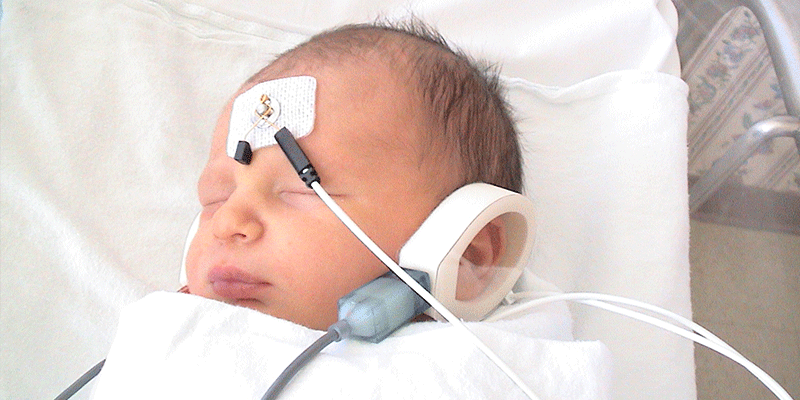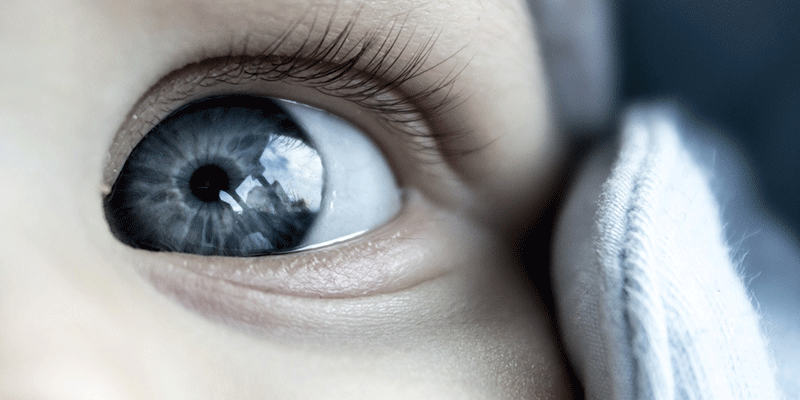
If my baby passes the newborn hearing screening, does it mean he or she will not have hearing loss later?
Unfortunately, no. Some babies may develop hearing loss later in childhood. Causes of late onset or progressive hearing loss in children can include genetics, frequent ear infections, other infections like measles or meningitis, a head injury, exposure to damaging levels of loud noises, and secondhand smoke. Newborns who need an extended period of neonatal intensive care may also be at an increased risk for hearing loss later.
Even if your baby passes the newborn hearing screening, you should still watch for possible signs of hearing loss as your child grows. Talk with your pediatrician if your child:
- Doesn’t startle at loud noises by 1 month or turn toward sounds by 3-4 months of age.
- Doesn’t notice you until he sees you.
- Concentrates on vibrating noises more than other types of sounds.
- Doesn’t seem to enjoy being read to.
- Is slow to begin talking, hard to understand, or doesn’t say single words such as “dada” or “mama” by 12 to 15 months of age.
- Doesn’t always respond when called, especially from another room.
- Seems to hear some sounds but not others. (Some hearing loss affects only high-pitched sounds; some children have hearing loss in only one ear.)
- Has trouble holding his or her head steady or is slow to sit or walk unsupported. (In some children with sensorineural hearing loss, the part of the inner ear that provides information about balance and movement of the head is also damaged.)
- Wants the TV volume louder than other members of the family.
If my baby passes the first hearing test, why is more screening needed?
Even if your child shows no signs of hearing changes, the AAP recommends they be screened again at ages 4, 5, 6, 8 and 10. Additional screenings are recommended sometime between ages 11-14, 15-17, and 18-21–or any time there is a concern. More frequent follow-up screenings may be recommended for children who have a higher risk for hearing loss. Hearing loss sometimes is gradual and hard to notice at first. Routine screenings can catch hearing changes early, when providing support and resources can have the most impact on the child’s development.
Remember:
Timing is everything. The sooner hearing changes are identified in a baby, the more likely interventions can help her reach her full potential. Talk with your pediatrician if you have any concerns about your child’s hearing.
Additional Information & Resources:
- Newborn Screening Tests
- Early Hearing Detection and Intervention – A Program of the American Academy of Pediatrics
- Centers for Disease Control and Prevention (CDC) National Center on Birth Defects and Developmental Disabilities (NCBDDD) – Provides research, basic information and statistics regarding hearing loss, screening and diagnosis, as well as current articles and educational materials for clinicians and families.
Last Updated 12/28/2018
Source American Academy of Pediatrics Early Hearing Detection and Intervention (EHDI) Program (Copyright © 2018)
The information contained on this Web site should not be used as a substitute for the medical care and advice of your pediatrician. There may be variations in treatment that your pediatrician may recommend based on individual facts and circumstances.






